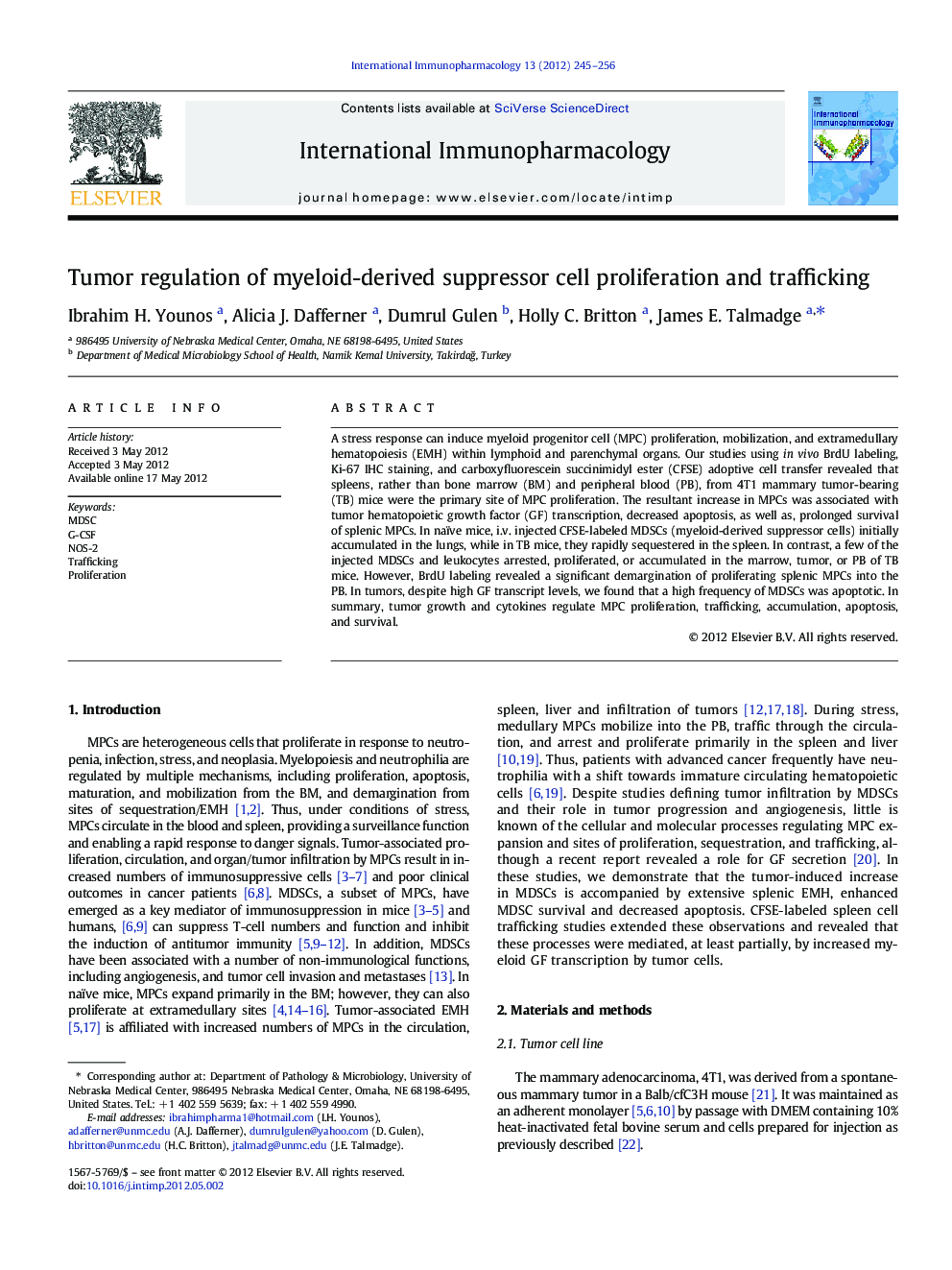| Article ID | Journal | Published Year | Pages | File Type |
|---|---|---|---|---|
| 2541317 | International Immunopharmacology | 2012 | 12 Pages |
A stress response can induce myeloid progenitor cell (MPC) proliferation, mobilization, and extramedullary hematopoiesis (EMH) within lymphoid and parenchymal organs. Our studies using in vivo BrdU labeling, Ki-67 IHC staining, and carboxyfluorescein succinimidyl ester (CFSE) adoptive cell transfer revealed that spleens, rather than bone marrow (BM) and peripheral blood (PB), from 4T1 mammary tumor-bearing (TB) mice were the primary site of MPC proliferation. The resultant increase in MPCs was associated with tumor hematopoietic growth factor (GF) transcription, decreased apoptosis, as well as, prolonged survival of splenic MPCs. In naïve mice, i.v. injected CFSE-labeled MDSCs (myeloid-derived suppressor cells) initially accumulated in the lungs, while in TB mice, they rapidly sequestered in the spleen. In contrast, a few of the injected MDSCs and leukocytes arrested, proliferated, or accumulated in the marrow, tumor, or PB of TB mice. However, BrdU labeling revealed a significant demargination of proliferating splenic MPCs into the PB. In tumors, despite high GF transcript levels, we found that a high frequency of MDSCs was apoptotic. In summary, tumor growth and cytokines regulate MPC proliferation, trafficking, accumulation, apoptosis, and survival.
► Our studies supported spleens as the site of MDSC proliferation. ► Decreased apoptosis and increased survival contributed to MDSC proliferation. ► MDSC proliferation was associated with increased tumor transcript levels. ► Differential trafficking of MDSCs occurred in tumor bearing vs. naïve mice. ► Higher levels of extrathymic proliferation were prominent in tumor bearing mice.
